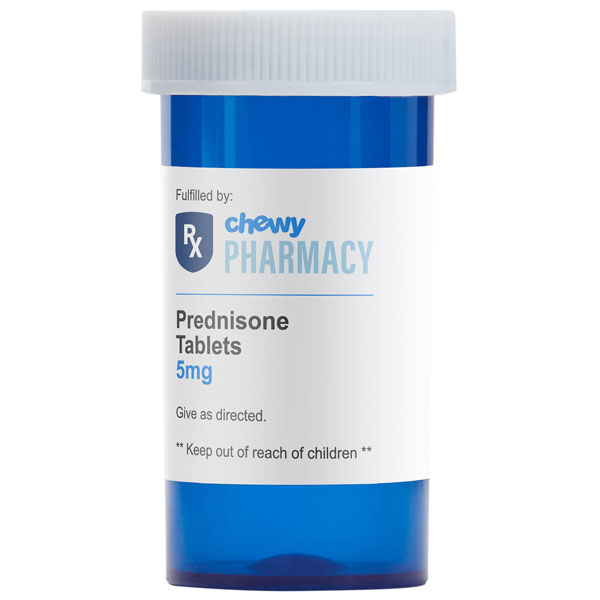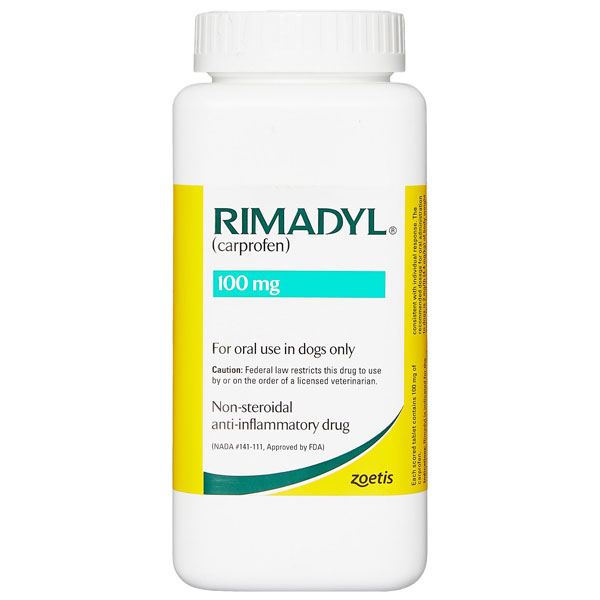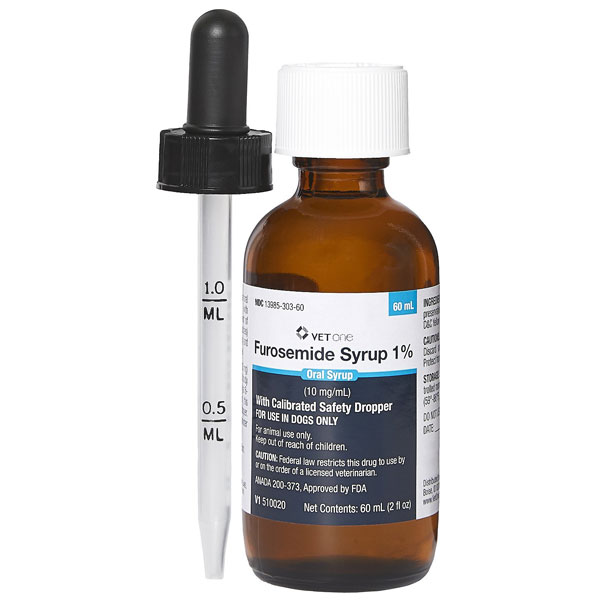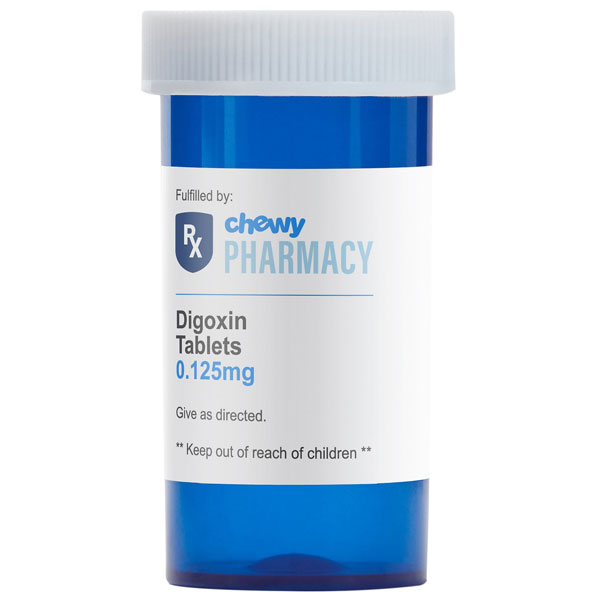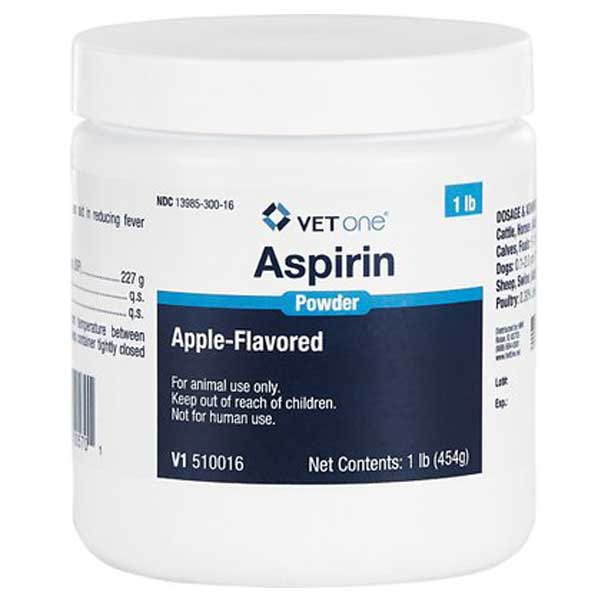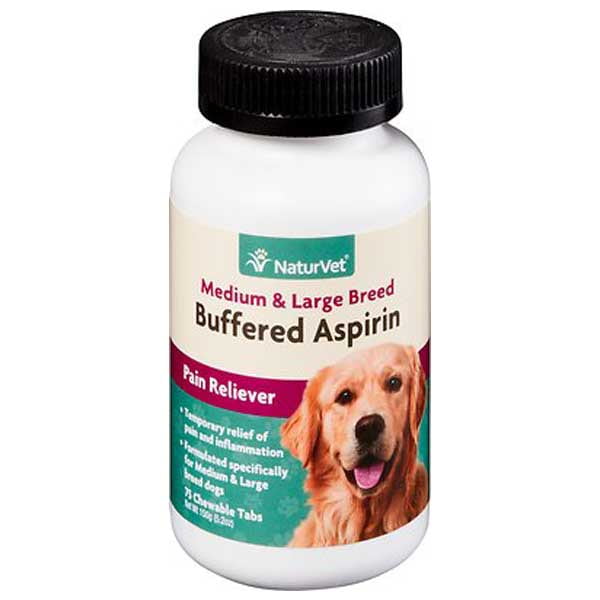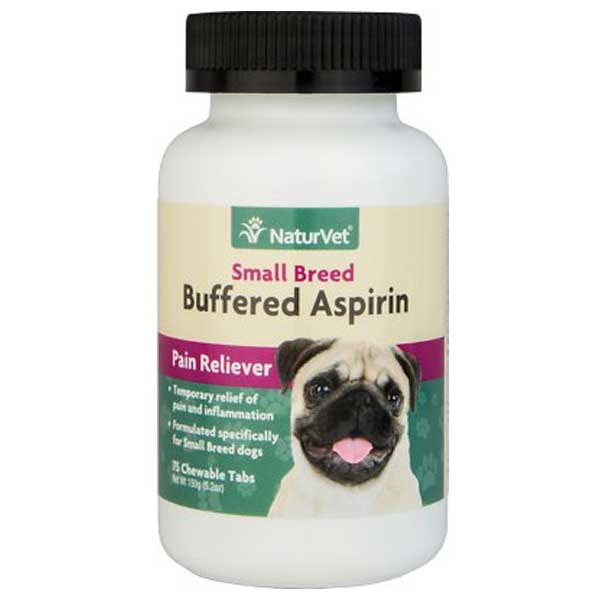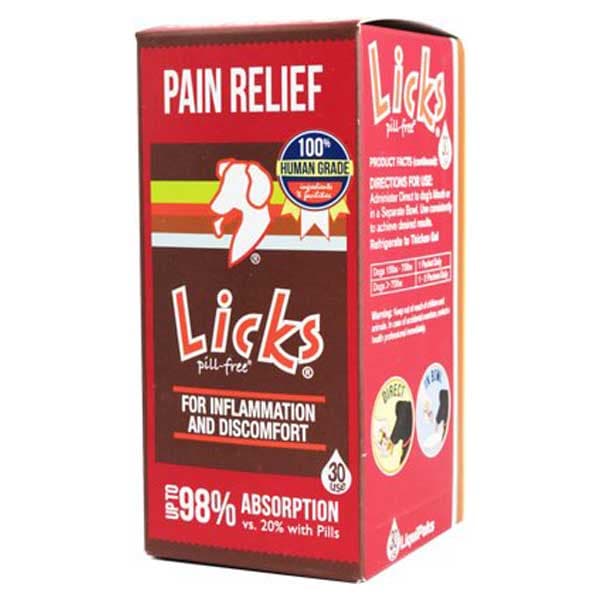No dog owner feels good when their pet is suffering, whether it is a medical condition such as arthritis, a pain issue caused by chronic inflammation or just a general, sore malaise. But in a similar way to humans, our dogs do get achy, hurt, or sick and can be dealing with pain at any point in their lives. Unfortunately, they just don’t have the words to explain where and why they hurt and what would help relieve it.
While we often have to make assumptions about how our dogs are feeling through observation of their moods or activity level, sometimes it is apparent that something is hurting them or making them feel out of sorts. Before jumping to the solution that we should treat them as we would ourselves, you need to check with your dog’s veterinarian to make you’re your choice of medication is appropriate for your pup. There are very few human medications that are healthily transferable in dosage and medical outcomes to your dog. Canines don’t react to the dosage and interactions as we do. This is especially true when dealing with mild non-opiate pain killers. Where we would often take Aspirin, Tylenol or Advil to combat a headache, aches or fever without a second thought, we can’t do that with our dogs without doing some background work first. Aspirin may be the answer, but your dog's vet needs to assess their symptoms first to assess appropriate medical care.
While Aspirin is NOT approved by the FDA, it can be given to dogs who are suffering from short term pain or are getting over surgery or an injury should their vet think it’s the right medical choice. The conclusion may be reached that aspirin is helpful for your pup to relieve their pain, but their vet will also warn you that it has some side effects that may appear when your dog is taking it. It's important that the vet walk you as an owner through how much and when to give your dog a dose of aspirin to not increase the chance of side effects. You will want to know what to watch for regarding negative reactions with the idea that your dog may need to halt their meds due to those reactions should they become a hindrance rather than a help to their well being.
What is Aspirin

Aspirin is a type of NSAID, a nonsteroidal anti-inflammatory drug. This means it is in a category of pain relief along with ibuprofen (Advil), baby aspirin, acetaminophen (Tylenol), naproxen, carprofen and many other medications that have similar properties and effects. These types of NSAID medications are used to relieve pain, reduce swelling and fever. They work by inhibiting an enzyme called cyclooxygenase with their active ingredient salicylate. This cyclooxygenase enzyme produces a substance that is similar to hormones called prostaglandins. It’s the prostaglandins that induce swelling, fever, and pain. However, in contrast to some negative effects they have on your dog, these prostaglandins also do positive, important things for their body such as making sure there is good blood flow to the kidneys, creating mucus to protect the gastrointestinal tract and getting blood to clot as needed.
Aspirin itself works against some of these good things which can be problematic if that is not the intended medical outcome. An example of this is found in the fact that aspirin will work against the prostaglandins as an anticoagulant. This means aspirin slows or stops blood from clotting. This can be both good or problematic depending on what your dog is suffering from. When used as a blood thinner, aspirin can help a pup avoid blood clots, but it also raises the risk of internal bleeding or an inability to stop external bleeding from cuts or other wounds while the aspirin is in their system.
NSAIDs, including aspirin, are often preferred by veterinarians over steroidal medications. When they have to prescribe meds, aspirin tends to have fewer side effects than steroids in the short term. A vet will want to go with the drug that offers the least chance of making your pup feel worse rather than better. This applies to short term outcomes as well as long term. However, a vet needs to oversee the dosages and timelines of how aspirin is given as some NSAIDS can be used long term while others lose their effects. Aspirin is one that is not usually good for long term use. Your dog must have the correct pain, fever, and ache reliever as assessed by their veterinarian so healing and relief can begin under safe and controlled conditions.
Dogs can be prescribed aspirin when they have osteoarthritis or musculoskeletal swelling, fever or general aches and pains. Aspirin targets swelling and pain as its an anti-inflammatory and can help your dog feel better as it will relieve some if not all of their symptoms. Aspirin is a drug that is good short term support while your dog heals or awaits the prescription of a more appropriate medication that can be found to combat long term chronic illness. However, it is not usually meant for long term use due to the possibility of significant side effects.
There are other conditions for which your dog might be prescribed aspirin such as joint or eye disease. For issues with heart and glomerular disease or other medical conditions where clotting can cause issues, low dose or baby aspirin can be used as a blood thinner for a longer period. Short term, it can also reduce body temperature when a fever gets too high. While some fever is needed to help stave off infection, too high can be extremely dangerous for your dog so getting it lowered in the short term is crucial and aspirin can help do that. That being said, aspirin does have potential side effects so don’t medicate your dog without their vet's input even if you know what their symptoms are and perhaps why they are occurring. This is important as there are often other medications that may be more appropriate to work on pain control and for long term medical intervention.

While many people assume aspirin is safe for dogs and don’t consult a vet, this is can be very dangerous as the medication doesn’t work the same way in our pets as it does for us. No drug should be given to your pup without their veterinarian's input simply because they understand dosage, drug interactions, possible side effects, and your dog’s overall health history. A vet can give you solid advice on how to avoid issues with aspirin which you may not know or understand without consultation with them. They will want you to be aware of the following symptoms in your dog that can be caused by aspirin:
Effects of Aspirin Overdose:
Symptoms won’t always present in every dog after long term or misuse of aspirin nor will they always present identically in each dog that experiences them. Whenever your dog is prescribed a new medicine, you need to watch their behavior carefully. It's important to notice if there are changes in their interest in food, their activity level, how much or how they go to the bathroom and general personality changes. These are all things that could signal a bad reaction to a new or long term use of medication. Aspirin is one of the NSAIDs that has more side effects so it is particularly important to watch for any changes once your dog started taking it.
You must be even more vigilant if you have given aspirin to a puppy. They metabolize salicylate (the active ingredient in aspirin) in a much slower way than older dogs and will be affected very differently than a mature dog. Puppies have very little ability to tolerate aspirin, Advil or Tylenol due to their young systems.
Along with the above-named side effects, you will also want to be sure there are no drug interactions that can affect your pup. You do not want to have your dog take aspirin with other NSAIDS as it increases the chance that they can get ulcers in their gastrointestinal tract. Aspirin should also not be taken with steroid-based drugs such as Prednisone or Rimadyl. Furosemide is also a problem when combined with aspirin as it heightens aspirins overall effects and can become toxic. Some medications such as Digoxin will last longer when combined with aspirin and others such as Spironolactone which is a diuretic will be less effective with that same combination. These are just a few of the drug interactions that are possible if your dog begins taking aspirin or another medicine added to their daily routine. These mismatched drugs make it very important that their veterinarian is involved to make sure no interaction is detrimental to the health of your dog.
Other health issues that can make aspirin a risky drug of choice is if your dog has current medical issues that affect their GI tract, liver or kidneys. Canine pregnancy could be an issue as well so it's best to make sure your vet knows and understands everything that is going on health-wise for your dog before you choose the form of aspirin for your dog.
While aspirin has many benefits for dogs, it's not a medicine that can be taken on a whim. The fact that it is not approved by the Food and Drug Administration (FDA) means there are very few studies that clearly evaluate the correct doses for dogs. The general recommendation is 5-10mg of aspirin per kg of weight every 12 hours but again this needs to take into consideration with your dog’s health, breed, current drugs and medical issue(s). You need to consult with the vet because the wrong dosage can be deadly for your dog.
Once you and the vet have determined what the correct dosage is for your dog, you need to look at what type of aspirin you should buy for your pup. Some aspirins are coated to protect the stomach from being bothered, but this is not a great option for pups as the coating that protects the human stomach is not always digestible by a dog so they will not get any of the medicinal benefits of the aspirin since it is simply pooped out through the dogs system undigested. You can’t just give your dog human brands of aspirin that you find in your medicine cabinet. Get the proper brand that is specific to dogs so you can be accurate on the dosing and absorption ability of the particular product. Go with uncoated aspirin, or powder so you can add it to their food to protect their stomachs from being bothered. You can get aspirin in various forms and whatever works best for your dog is fine as long as it is the appropriate dosage as recommended by your pups’ vet. You can purchase:
Aspirin Power: - Makes for easy dosing and hiding in food. It won’t deter your dog from eating and will make digestion of aspirin simple. This powder can help bring down temperatures as well as being a mild pain reliever. Just measure the appropriate amount needed, mix it into food and then offer it to your dog. Simple and easy administration of the drug.
Buffered Aspirin Chewable: - This particular brand is for medium to large dogs so you need to be careful about the dosage you offer to your dog. You may need to adjust the size of the pill if your dog is on the smaller side. This is a buffered pill so its easier on your dog’s tummy and the fact that its chewable with a beef tasted means it's easy to administer. Make sure you offer the chewable to your dog with some food just to make sure they digest it well and absorption into the body is easily accomplished.
Licks Pain Relief: - If your dog shies away from pills then this is the perfect aspirin option. It’s a gel-based medication that has a roasted chicken tasting gel and that gel means that the meds get absorbed into the system quickly compared to pills. As with many medications, offering it with food is always a good idea simply because it buffers the stomach from simply digesting the medicine and reacting with acidity.
Chewable for small dogs: - a great chewable aspirin for small dogs. Good flavor and in a form that will help to make sure there will be minimal tummy upset. Again, be aware of the dosage as you may need to adjust the size of chew given if your vet wants a different dosage depending on your dog’s size. Small dogs are easily affected even by minimal dosage variants.
Along with all these aspirin options, some pills can be bought for your dog but if you go that route for your pet's aspirin you may need to get pill pockets to help your pup ingest them without spitting them out. There are lots of options no matter which way you and your dog's vet choose to dose your pup in the short term. You want the option that saves you the hassle of trying to get the medicine into your dog.
Product Image | Product Name | Buy Now |
|---|---|---|
Prednisone (Generic) Tablets | ||
Rimadyl (Carprofen) Chewable Tablets for Dogs | ||
Furosemide (Generic) Syrup for Dogs, 10 mg/mL, 60-cc | ||
Digoxin (Generic) Tablets | ||
Aspirin Powder for Dogs and Horses Apple Flavor | ||
NaturVet Buffered Aspirin Pain Reliever for Medium & Large Breed Dog Chewables | ||
NaturVet Buffered Aspirin Pain Reliever for Small Breed Dog Chewables | ||
Licks PAIN RELIEF Inflammation & Discomfort Pill-Free Dog Supplement | ||
Greenies Pill Pockets Canine Chicken Flavor Dog Treats |
Final Thoughts
Aspirin for dogs is a solid choice for short term medical support when you are trying to relieve their aches, pains, and fever. It is not meant as a long term answer but can certainly relieve these problematic symptoms if your dog is recovering from surgery, injury or a brief illness. Aspirin is also helpful if you need to get your dog's temperature lowered in the case of particular illnesses. The most important factor in using aspirin is that your dogs’ vet is involved in the choice of medicine, the dosage, and frequency. As with most medicines, aspirin can be a problem for your pet if they are improperly medicated or if there are possible negative drug interactions that you are not aware of.
The dosage and effect of aspirin can not simply be transferred from human to canine. Dogs need the drug to meet their specific needs, size and metabolism. Too much or too little will either do nothing or cause harm. You want the proper dosage that is best for your dog. Aspirin has the potential to be a beneficial drug for your canine companion, but it must be taken properly, or it can threaten your pets well being rather than relieving them of their symptoms.


